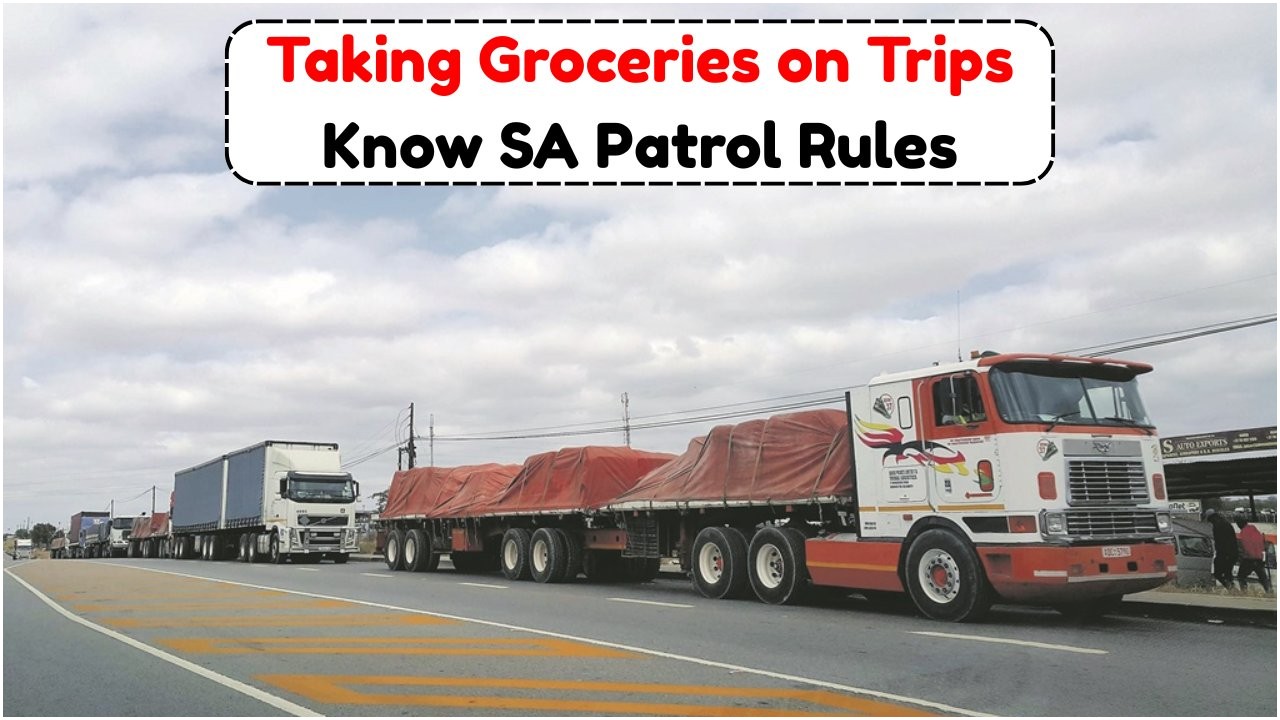Planning a road trip in South Africa: If you’re gearing up for a journey across South Africa’s scenic landscapes, there’s more than just the route to consider. While the open road beckons with promises of adventure, it’s crucial to be aware of the food items you pack. Recently, South Africa’s border control has become increasingly vigilant, confiscating surprising food items that travelers might assume are safe. Understanding these restrictions can save you from unnecessary hassle and help you avoid unplanned stops at border stations. So, whether you’re heading to the lush vineyards of the Cape or the wild beauty of the Drakensberg, make sure your snacks won’t land you in hot water.
Why South Africa’s Border Control Is Tightening Food Regulations
South Africa’s border control has been tightening food regulations in response to several factors that impact both public health and the agricultural sector. With the increase in international travel and trade, there is a higher risk of introducing pests and diseases that can affect local produce. This is particularly crucial for a country like South Africa, which relies heavily on agriculture as a cornerstone of its economy. Authorities are not only concerned about the direct impact on crops but also about the potential health risks to consumers.
- Protection of local agriculture from foreign pests.
- Prevention of disease outbreaks.
- Ensuring food safety for consumers.
- Supporting local farmers and producers.
- Compliance with international trade standards.
Commonly Confiscated Food Items at South African Borders
Travelers are often surprised by the range of food items that are confiscated at South African borders. Despite being commonplace in daily diets, these items pose significant risks when transported across regions. Fresh fruits and vegetables, for example, can harbor pests that are not present in South Africa, potentially wreaking havoc on local ecosystems. Similarly, dairy products and meats can carry diseases that affect both humans and animals.
| Food Item | Reason for Confiscation | Alternative Options |
|---|---|---|
| Fresh Fruit | Risk of pests and diseases | Dried fruit or processed snacks |
| Dairy Products | Potential health risks | Long-life milk or plant-based alternatives |
| Raw Meat | Disease risk | Canned or cooked meats |
| Homemade Preserves | Unregulated production | Commercially packaged preserves |
| Spices | Potential contamination | Sealed, branded packets |
How to Prepare for a Hassle-Free Border Crossing
To ensure a smooth border crossing experience, it’s essential to prepare adequately. Start by researching the latest regulations on food items before you pack your bags. Remember, regulations can change, especially in response to new threats or international agreements. Keep abreast of any updates through official government websites or travel advisories.
Tips for Avoiding Food Confiscation
- Check current travel and border regulations online.
- Opt for packaged and sealed food items.
- Avoid fresh produce and raw meats.
- Label homemade food items clearly if allowed.
- Consider purchasing food locally upon arrival.
By following these guidelines, you can enjoy your road trip without the inconvenience of having your food supplies confiscated.
Understanding the Impact of Confiscated Food on Your Travel Plans
Having your food items confiscated can impact your travel plans significantly, especially if you’re on a tight schedule or budget. Not only does it result in a loss of resources, but it also means you have to find alternative food supplies, which might not be readily available depending on your location. It’s advisable to plan your meals around locally available produce to mitigate such risks.
Impact on Travel Plans
| Scenario | Consequence | Solution |
|---|---|---|
| Food Confiscation | Unexpected delays | Plan for extra time at borders |
| Lack of Alternatives | Limited food options | Research local eateries in advance |
| Budget Constraints | Increased travel costs | Allocate funds for local purchases |
| Health Risks | Potential food poisoning | Choose safe, prepared meals |
| Dietary Restrictions | Difficulty finding suitable food | Carry essential dietary items |
FAQ Section on South African Border Food Regulations
What food items are commonly confiscated at South African borders?
Fresh fruits, vegetables, dairy products, and raw meats are frequently confiscated due to health and safety concerns.
Why is it important to follow border food regulations?
These regulations protect local agriculture, prevent disease outbreaks, and ensure food safety for consumers.
How can I ensure my food won’t be confiscated?
Opt for packaged, sealed food items and avoid fresh produce and raw meats when crossing borders.
Are there penalties for trying to bring prohibited food items?
Yes, there can be fines and delays if you attempt to bring prohibited items across the border.
Where can I find the latest food regulations before traveling?
Check official government websites or travel advisories for the most current information.










